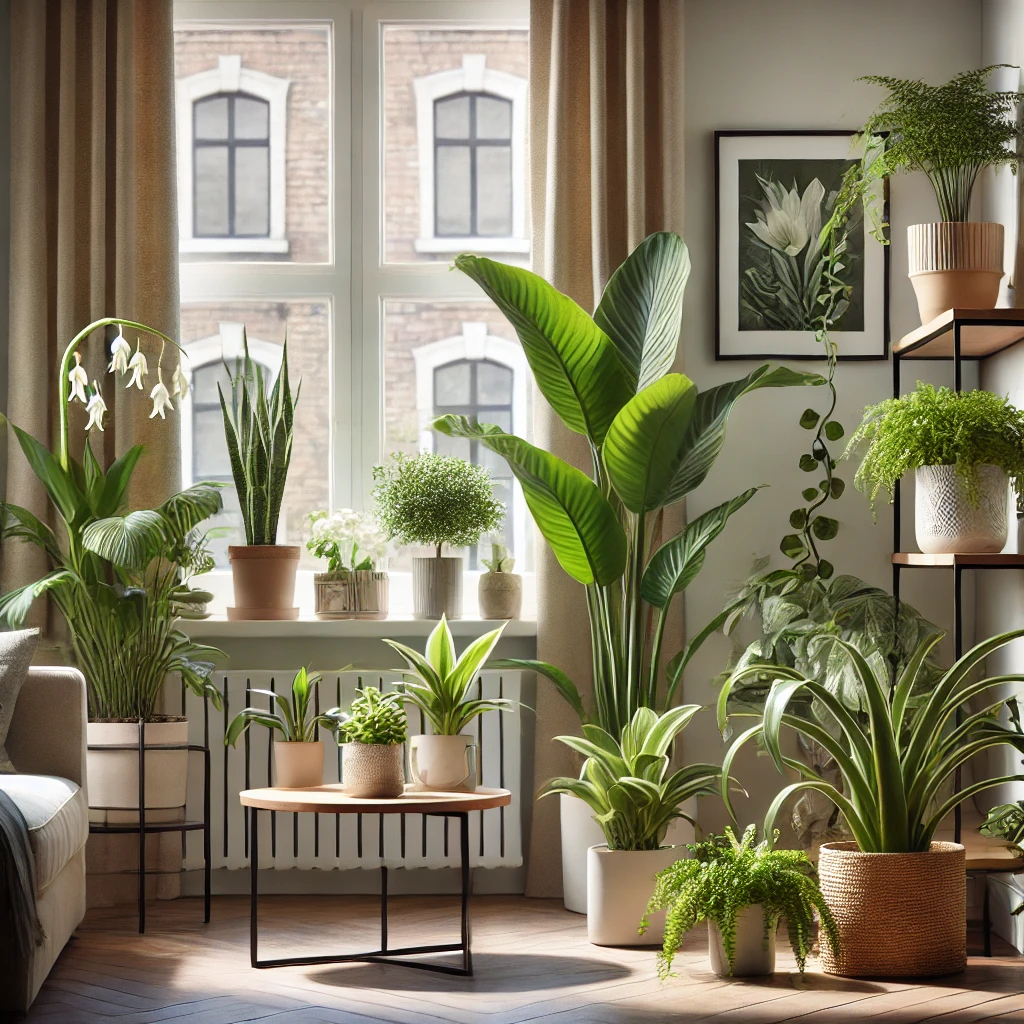Snake Plant: The Ultimate Air-Purifier
Sansevieria, or snake plants, are among the greatest indoor plants for enhancing air quality. They are renowned for their capacity to remove toxins from products used in the home, such as benzene, formaldehyde, and trichloroethylene. Snake plants are ideal for bedrooms and other areas where you spend a lot of time because, in contrast to most other plants, they release oxygen even at night. They only require watering every few weeks, and their tall, erect leaves are low maintenance. You can improve the aesthetics of your interior space and make it healthier by bringing in a snake plant.
Peace Lily: Aesthetic and Air-Purifying
Another great option for enhancing air quality and beautifying your house is peace lilies. Common air pollutants like ammonia, formaldehyde, and mold spores can be effectively eliminated by these plants. They add style and functionality to any space with their large glossy green leaves and graceful white blooms. With only minimal watering and indirect sunlight requirements, peace lilies are comparatively easy to maintain. Their attractive appearance and ability to purify the air make them a popular choice for those who want to enhance the quality of indoor air without putting in a lot of work.
Aloe Vera: A Dual-Purpose Plant
Aloe Vera is a well-known plant known for both its medicinal qualities and its capacity to enhance indoor air quality. Formaldehyde and benzene, two dangerous chemicals present in household cleaning products, can be eliminated with the aid of aloe. Aloe vera is a dual-purpose plant that has the added benefit of its gel being used to soothe burns and skin irritations. Aloe is the perfect plant for people who like low-maintenance landscaping because it grows well in bright, indirect sunlight and only needs to be watered when the soil is completely dry. Thick, meaty leaves that purify the air while adding a natural, fresh touch to your house.
Boston Fern: A Humidity-Boosting Air Cleaner
In addition to being excellent air purifiers, Boston ferns also contribute to air humidity, which is advantageous in dry indoor spaces. Formaldehyde, xylene, and toluene are all effectively filtered out by these lush, feathery plants. In particular, when it’s dry inside, Boston ferns need frequent watering to maintain the moisture in their soil. They grow best in indirect light. Not only does a Boston fern improve the air quality in your room, but it also creates a healthier, more humid atmosphere that is ideal for people with dry skin or respiratory problems.
